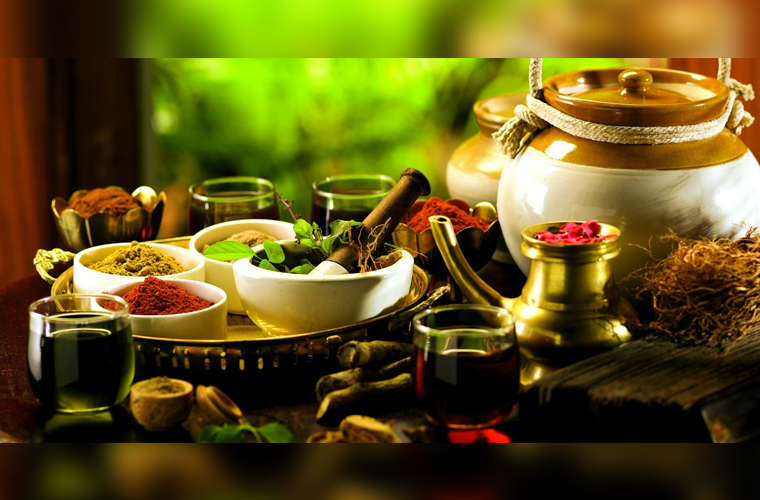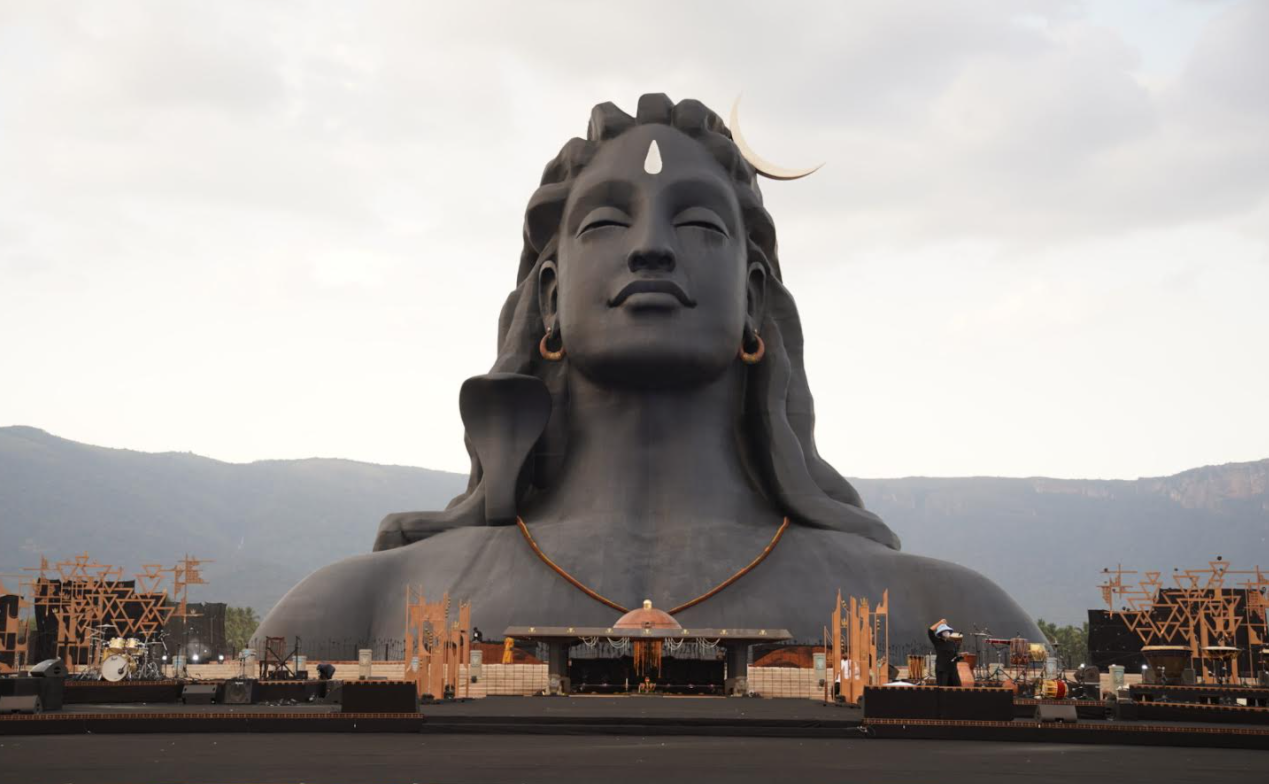Trending Now
- “If Edappadi Palaniswami permits, a thousand young members from the Virudhunagar district AIADMK are prepared to take up arms and engage in battle under my command.” – Former AIADMK Minister Rajendra Balaji
- “India is ready to deal with any counter-attack by Pakistan” – Wing Commander Vyomika Singh
- Central govt orders extension of CBI Director Praveen Sood’s tenure for another year
Coimbatore
Ayurveda survived negligence, needs to be nurtured, not proscribed
![]() August 24, 2017
August 24, 2017
Bengaluru: A week back, my daughter, all of 2 years was down with cough and cold, and I didn’t want her to pop some more of these allopathy medicines for her recurrent issue. I wanted to try out Ayurvedic medicine for a long lasting solution. But there I was, being screamed at by my husband who didn’t believe in Ayurvedic medicines and its capacity to cure. “I don’t trust Ayurvedic medicines. I am not sure if it is a science backed by evidences. I don’t want you to risk her health,” he exclaimed. The problem with Ayurveda is, that we still are unclear about its scientific capacity or in India, we haven’t had a public debate on Ayurveda that could uplift it to be understood, embraced and trusted by the common people. Not very long ago, Former Health Minister Harsh Vardhan’s comment on the increase of Ayurvedic treatment in All India Medical Sciences created quite a stir. With a government that is pushing the nationalist agenda, it is surprising that Ayurveda still hasn’t taken centre stage like Yoga has.
Dr P. Ram Manohar, Research Director, Amrita School of Ayurveda, Amrita University, Kollam, Kerala talks about Ayurveda, and how it has survived negligence. Read on..
Time and again, the finger is pointed at the Ayurvedic community for their inability to provide evidence about safety and efficacy of products and procedures administered for treatment. A physician trained in modern medicine is able to warn his patient about potential side effects and what outcomes to expect. But subjecting oneself to Ayurvedic treatment is like submitting to the whims of the weather gods. One has to be prepared for totally unexpected outcomes.
I wouldn’t dare to enter into the debate of whether evidence is needed or what type of evidence is needed to vouchsafe Ayurveda and risk opening yet another Pandora’s box of endless arguments. At this point of time, I ask a very innocent question. Where did all this evidence that the doctors swear by when practising modern medicine in India come from? Did they emanate from the research laboratories of our country? The ground reality is that modern medical knowledge in India has been imported wholesale from the first world. Packaged with efficacy data, safety data and all the indications and contraindications, with a heavy price tag. Indeed, there is no denying the fact that a number of times, the medicines may have been tested on the Indian population. When the Pharma companies throw peanuts, we jump on to the stage to play second fiddle. India has not really generated new medical knowledge. An eminent surgeon from India once said, “In India there is no Medical Research, there is only Clinical Medicine”. If there was no medical knowledge to import from the first world, and with Ayurveda no longer contributing, where would we have obtained the evidence from? Well, the progress of medicine in India has been the story of racing against time to catch up with the West. Some decades ago, access to the most modern medical care was delayed. It would take ten or fifteen years before an Indian could aspire to get access to medical care available in Europe or USA here in India. The richer amongst us would pack off in a plane to get the surgeries and treatments done in Houston, Portland or Manchester. We are much better off today, we have become smarter and are importing technologies and discoveries in medicine almost in real time from the “more developed” parts of the world. We are also turning into a destination for medical tourism. Nevertheless, our doctors still need to go abroad for that special training and exposure that makes them fully capable of doing the magic of modern medicine. The dream of new medical knowledge being generated in India, of being exported out of our country still remains beyond our imagination.
Look at Ayurveda, a tradition of healing with unbroken continuity that we now accuse of being baseless and refusing to die. Without any evidence of safety and efficacy, still doing the rounds because of the schizophrenic afflictions of the Indian psyche that cannot let go of a useless past to embrace the present of infinite possibilities.
When Ayurveda was mainstream in India, it was a tradition of health care that invented and discovered new medical knowledge. Medical knowledge that was exported to many parts of the world. A tradition that also imbibed new knowledge from other medical traditions around the world.
In the last few centuries, Ayurveda has been completely neglected, accorded step motherly treatment or lip service more due to political reasons than its own limitations. It has survived only because of the momentum of tradition. With the lion’s share of the investment in health care being kept aside for modern medicine, what we have at the end of the day is still just clinical medicine borrowed from the West, no medical research yet that generates new knowledge. With a fraction of this investment being spread thinly on Ayurveda, which is more than often returned back to the coffers of the Government unspent, more than often spent unwisely, we should be amazed that there is still some Clinical Medicine left of Ayurveda. I would say enough of Clinical Medicine to just keep the spark alive. All the more reason to invest resources, both money and human to generate the evidence that we need to make it relevant and acceptable in our times.
The fact is that India still does not have a conducive environment to produce new medical knowledge based on rigorous research. Not even in modern medicine. Not to speak of Ayurveda. Funds are needed, but more funding will not solve the problem by itself. Without nurturing the spirit of research, the creativity to kindle the discovery of new knowledge and leadership cannot be actualised. Human resource development and strategic research planning must go hand in hand with allocation of funding to turn the tables around.
Can we take a cue from the Chinese and think seriously about placing Ayurveda on the roadmap in a well defined way for the development of Indian health care system in the future. With the ancient insights of Ayurveda and the powerful tools of modern science, we can spark off a new path of medical discoveries that can change the trajectory of medical research in India. The preliminary results of the Science Initiative In Ayurveda under the leadership of Dr. M.S. Valiathan, the outcomes of the NIH funded study conducted at AVP, Coimbatore and the Ministry of AYUSH funded study carried out at Charite Medical University in Germany are all pointing towards a world of immense possibilities that waits to be unlocked.
With a pluralistic health care system, it is a paradox that India does not have a policy for Integrative Medicine. The Integrative Model that can harness the strengths of Ayurveda with the new development of modern medicine can revolutionize health care and make India a global leader in health care.























